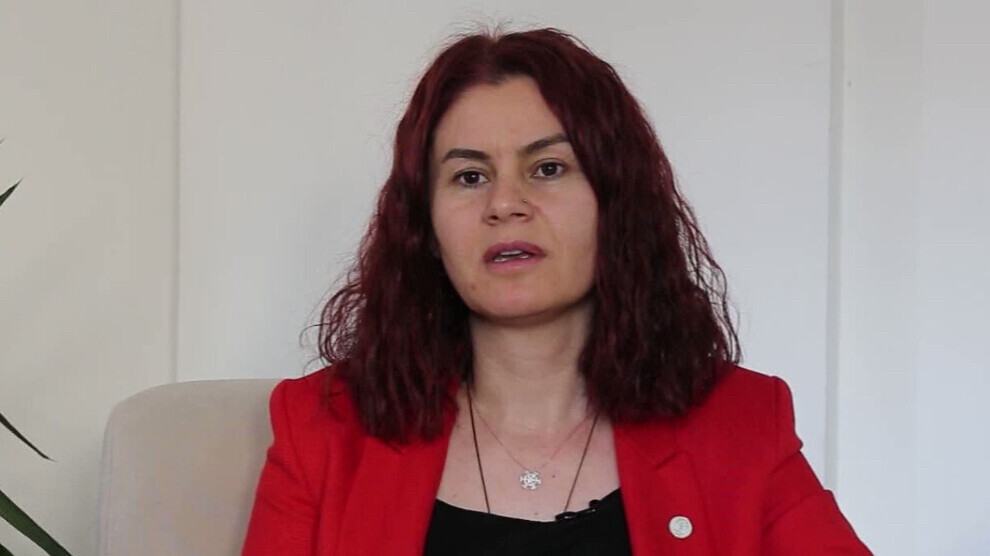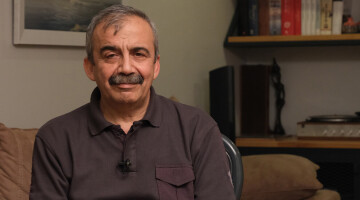The “Kurdish Unity and Common Stance Conference” held in Qamishlo, Rojava, on April 26, was met by the interim administration in Damascus and the Turkish Foreign Minister and President with threats. Gülcan Kaçmaz Sayyiğit, a member of the DEM Party Van delegation who attended the conference, spoke to ANF about the conference and the following reactions based on Kurdish hostility.
The conference envisages the construction of a shared life in Syria
Sayyiğit noted that the conference brought Kurds together after a long effort and hard work, with nearly 400 delegates in attendance, saying, “The fact that Kurds with different understandings demonstrated a common stance has made this conference go down in history in golden letters.” Sayyiğit remarked that the conference's final declaration and joint stance document, reflect the collective will of the participants, and envisage both the constitutional guarantee of the status and other rights of the Kurds and the construction of a shared life in Syria.
Any development affects other parts of Kurdistan as well
Gülcan Kaçmaz Sayyiğit stated that any positive or negative outcome emerging in any part of Kurdistan inevitably affects the other parts as well, saying, “We can now see the effects of Mr. Abdullah Öcalan's historic call on February 27. For example, a positive development in Turkey and Bakur (North Kurdistan)—such as constitutional guarantees for the rights, status, identity, and language of Kurds—will also affect the other parts. Another dimension is the kinship between Kurds living in Rojava and those in Bakur. Beyond sharing the same identity, we have relatives there. Therefore, any positive development there has psychological, political, and sociological effects on the other parts.”
Turkey must abandon its policy of viewing Rojava as a threat
Emphasizing that Turkey must abandon its policy of viewing Rojava as a threat, Gülcan Kaçmaz Sayyiğit continued: “The Kurds living in North and East Syria are not a threat to Turkey. They are trying to build a shared life with the other peoples living there. Our visit there and our participation in the conference were not secret. Following Mr. Öcalan's call, we conducted some visits in Bashur (South Kurdistan). Ultimately, we traveled to Hewlêr (Erbil) via an airport in Turkey and then proceeded to Rojava. We shared the discussions we held there through the official social media accounts of our party.”
The timing of the conference was a great opportunity for us
During this visit, we set the goal of finding out what the Kurds/Kurdish actors think about this process. This was one of the issues that Mr. Öcalan was also curious about, and we held our talks in Bashur in that vein. The reason for our visit to Rojava was also to find out how the Kurds in Rojava view the process that has been initiated in Turkey, how the people living in Rojava view it, how they evaluate the call for peace and a democratic society, and what they think about the socialization of peace. What do the civil society organizations, individuals, and political parties there think? The timing of the conference was a great opportunity for us. Being there on that day, witnessing that historic moment, is truly something very valuable for us.”
Recognizing the unity and status there will also benefit Turkey
Gülcan Kaçmaz Sayyiğit said that the remarks of Syria's interim President Ahmed al-Sharaa and Turkish Foreign Minister Hakan Fidan after the conference were unfounded, adding: “The content of the conference does not reveal any fragmentation, division, or threat to Turkey. As I mentioned earlier, we are talking about a model built together by the people there. We are talking about a way of life where all the peoples, all beliefs, actually come together at a common point. Therefore, the unity there will not harm Turkey. On the contrary, recognizing that unity and status will also benefit Turkey. Talking about a peace process with the Kurds within its own borders while displaying hostility toward the Kurds outside its borders is not a policy that will benefit Turkey.”












